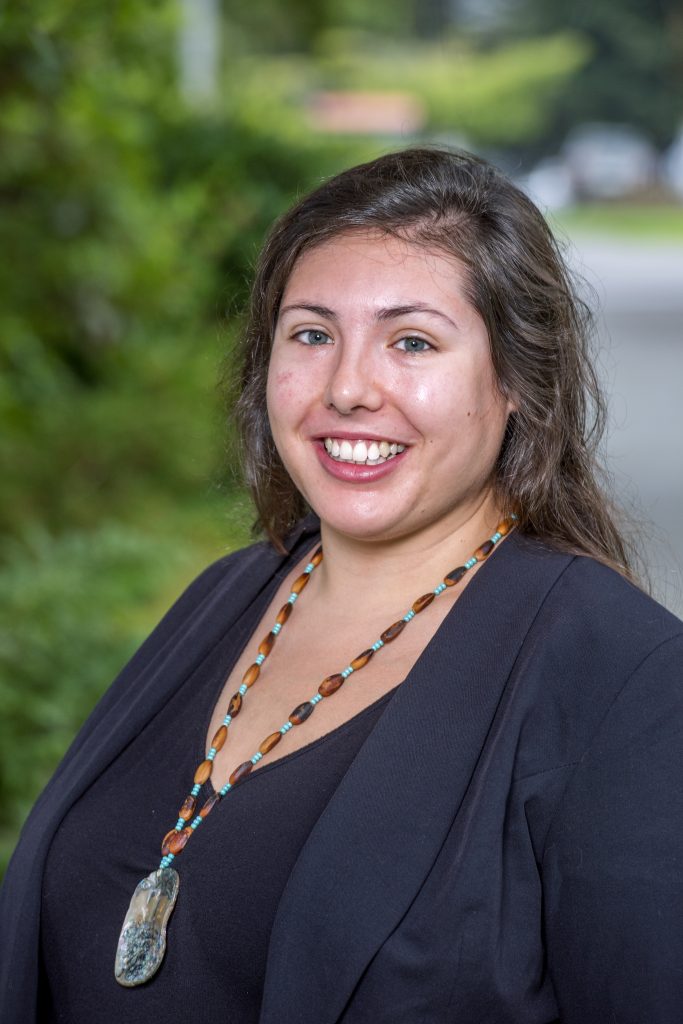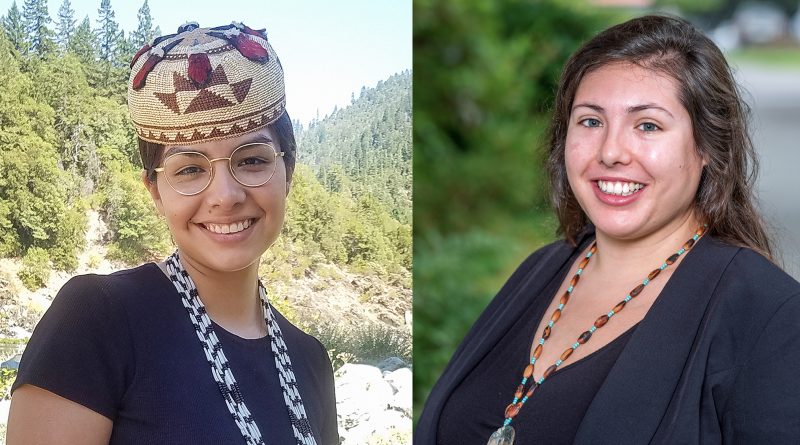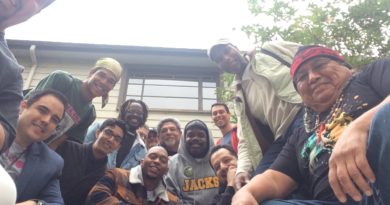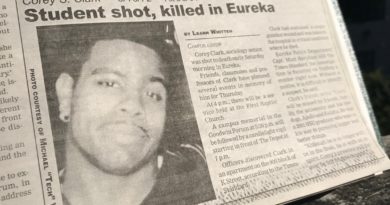Decolonizing Sustainability Speaker Series continues on Oct.12 at Cal Poly Humboldt with professor Kaitlin Reed
Two additional speakers will take part in the Decolonizing Sustainability Speaker Series this fall. The first speaker was Brittani Orona on Sept.14, and the next speakers are professors Kaitlin Reed on Oct. 12 and Dana Loyd on Nov. 16. The in person events will be at the Native American Forum room BSS 162 at Cal Poly Humboldt from 5 – 6:30 p.m.
“The speaker series is really designed to kind of interrogate the centrality of settler colonialism and white supremacy in a lot of American environmental movements, both historically and in the present,” said Assistant NAS Professor and Traditional Ecological Knowledge (TEK) Faculty Fellow Kaitlin Reed. She is the main organizer of the series and an enrolled member of the Yurok Tribe.

Sept. 14 | Photo provided by Orona
Brittani Orona – September Highlights
Orona is University of California president’s postdoctoral fellow at UC Santa Cruz and serves as the Board Secretary for Save California Salmon, among many other things. She is an enrolled member of the Hoopa Valley Tribe. Her research and teachings are focused on Indigenous history and human rights, environmental studies, public humanities and visual sovereignty.
Orona explained that the subject of her talk on dam speculation focuses on her current research around the organized resistance against the proposed water infrastructures on the Klamath River from colonization into the present day.
“The period of dam speculation began with early colonization on the Klamath River Basin when various waves of settlers from both the Upper Basin and the Lower waged violent wars against Native people,” Orona said. “These wars began the period of resource extraction and environmental degradation through salmon fisheries, timber and gold mining.”
Orona argued that many Californian agencies say they didn’t formerly understand how building dams on the river would affect Native people and the environment. She argues that they fully understood how they would affect these things and that this argument of past ignorance is “an interesting settler scheme.”
“So, the occupation of stolen lives, lands, stolen lives, dispossession, all of this that I’m talking about right now, very much ties into climate catastrophe,” Orona said. “And it starts during this very intense period of colonization. And I’m really looking here at the Klamath River Basin as an example of this.”

12 | Photo provided by MARCOM
Kaitlin Reed – Oct. 12
Reed explained that conservation and preservation movements are often juxtaposed with mindsets that want to take from nature when in fact, they are “two sides of the same coin, a very Eurocentric coin.” Reed explained that these mindsets view humans as being separate from nature rather than just a part of the same system as humans.
Professor Reed just published a book called Settler Cannabis: From Gold Rush to Green Rush in Indigenous Northern California, which is the topic of her talk.
The green rush refers to cannabis cultivation, specifically trespass cultivation. The book also touches on the timber rush and the fish rush, and concludes with a critique of the back to the land movement, Reed said. She explained that in Humboldt, the back to land movement is often romanticized, when in fact, its origins stem from white people leaving urban and suburban areas to buy up land in Humboldt that became very cheap because of the timber collapse.
“They quickly realized they had no idea how to live off the land,” Reed said when speaking about the need for money that was soon realized by the settlers. “So, they start cultivating cannabis as a way to earn a cash income.”
Reed goes deep in her book about cannabis cultivation in Yurok Ancestral Territory as well as other tribal nations and the exclusion of tribal nations’ participation
in the legal cannabis economy. She stated that trespass cultivation affects water and land by toxifying them and is also a source of land dispossession and violence toward Indigenous people.
She argues that before we can envision a sustainable cannabis industry, land needs to be given back and the dams must come down so that the rivers can recover from the critical condition they are currently in.
CORRECTION: The print version misidentified professor Kaitlin Reed’s title. We regret the error.




